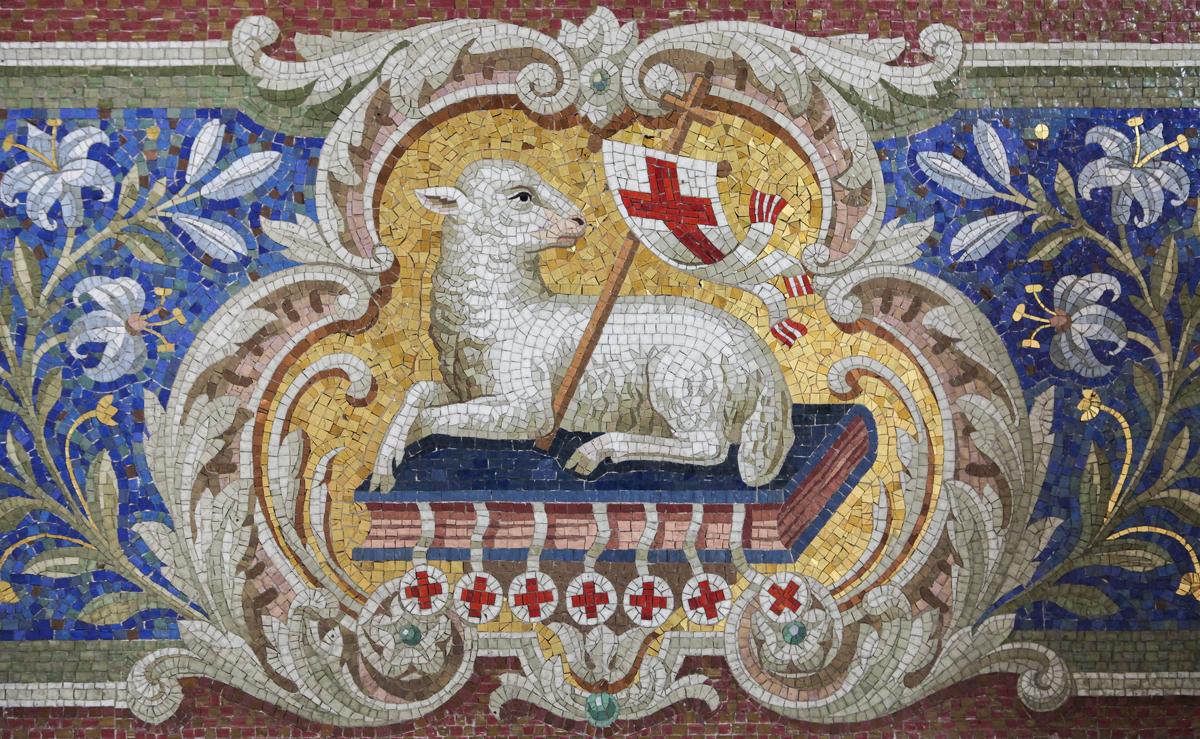Without the means of grace or a faith rooted in the means of grace, there is little objective left of objective justification and it becomes merely subjective, only subjective. Left adrift without its anchor within the means of grace, justification by grace merely limps along the path of choice and decision, assent and consent. It cannot become anything except subjective, limited to the perception, judgment, and commitment of the individual. It ends up being more a psychological state than the powerful reconciliation of God to man by men able to transform the dead to life. I know because I know -- and the because can be my feeling or emotion, my experience or conviction, or my decision or choice. The Word and the Sacraments make the intangible tangible, point us away from ourselves and to Christ, and deliver to us the actual fruits and effects of His atoning work so that we live not an imagined life but the most real life of all.
When I complain that we have a Word centered piety instead of one centered in the means of grace, in particular in the Sacraments with the Word, it is not a piety issue at all but one that is distinctly related to the truth on which the Church stands or falls -- it is a justification issue. Without an anchor in the Sacraments, the Word too easily fills the imagination and becomes the servant of our will. Left without its divinely intended mooring in the Sacraments, justification is left to live in the imagination and becomes merely a subjective, psychological state instead of something concrete and real. Our certainty becomes a subjective captivity in which we are ever bouncing from belief to unbelief and back again -- as if today I believe and tomorrow I don't. This strange circle of doubt and conviction leave the mightiest work up to us and the work of Christ becomes a mere facilitation of our own choice, feeling, or decision.
Our regular participation in the sacramental life of the Church is then essential to maintaining our faith and pulling us ever back from our preoccupation with ourselves and into the realm of grace. Our life of faith is maintained not by our religious experience or our decision or our imagination but by the concrete participation in the sacramental life of the Church. Lutherans are not Protestants with a peculiar style of worship and a high view of symbolic sacraments and the Word of God. We are catholic people and a catholic church with our lives flowing from and back to the Holy Eucharist. We are the baptized who are washed and cleansed and given the new birth for our participation in the Marriage Feast of the Lamb, the foretaste of which is given to us here and now. We are the absolved who know the grace of forgiveness not as the divine response to any work we have done or choice we have made or regret we feel, but as the state of our lives, the prodigals restored by the loving Father, the clothing restored -- all for the feast. This is how justification remains objective and yet we grasp hold of it through the work of God continually known and lived out through the means of grace. Rome has turned this into something mechanical and still rooted in our performance or the performance of the priest on our behalf. Orthodoxy has turned this into something mystical. Protestantism has turned this into something either cerebral or emotional, but in either case subjective reality or not real at all. It is Lutheranism that has restored not simply the justification by grace to its place but how that grace is made tangible and how we live in it as well as because of it.

1 comment:
"It is Lutheranism that has restored not simply the justification by grace to its place but how that grace is made tangible and how we live in it as well as because of it." Beautiful statement, Pastor. Confessional and comforting.
I look forward every Sunday to the Means of Grace in the Liturgy of Preaching and singing the Scriptures through the beautiful tool of the Church Year. Every Sunday I am comforted by the primroses of God about His work in Confession and Absolution, in Holy Baptism and in and the Lord's Suppers. It is all God's Work
The Holy Spirit does plant Faith through the Means of Grace..it is not a decision I make of my own strength or will.
Thank you for your blog. I read it every day and often do word searches for such things as "The Means of Grace" "The Liturgy. You are truly a Confessional treasury.
Timothy Carter, simple country Deacon. Kingsport, TN.
Post a Comment